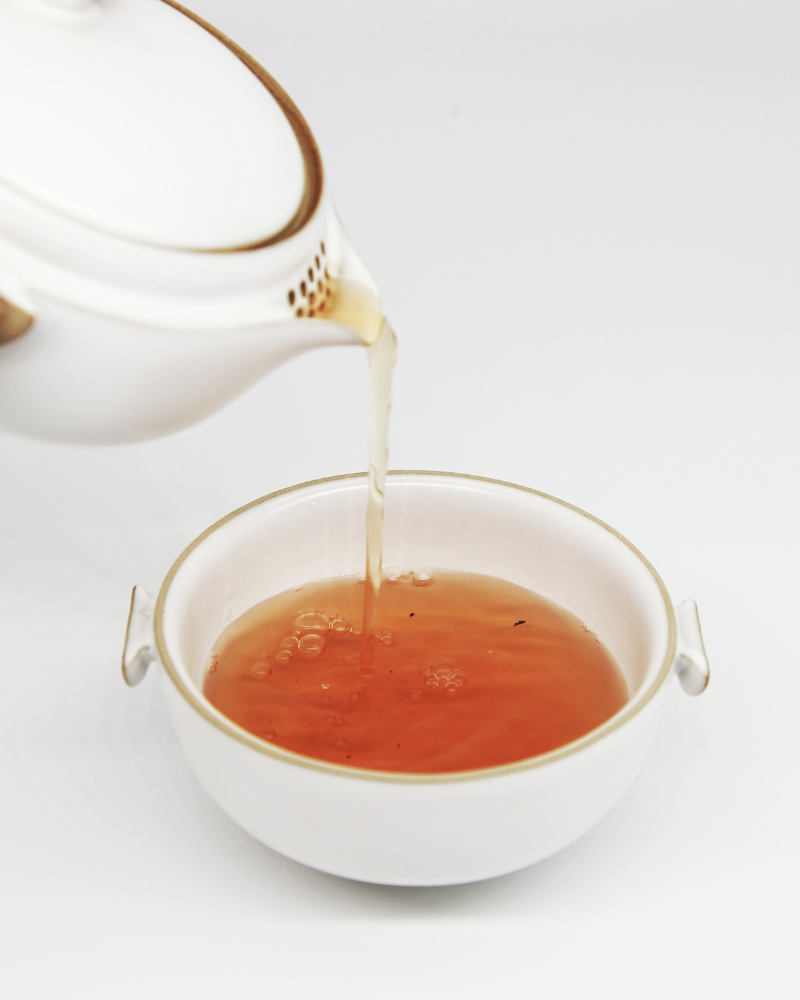Boost Your Immunity: Best Fall and Winter Teas for Health
Tea, an age-old tradition shrouded in the mists of time, is more than just a beverage. It's a timeless ritual that offers comfort and nourishment, a quiet pause in our hectic lives.
Tea's charm knows no boundaries, with diverse cultures infusing their unique essence into this drink. From the serene tea ceremonies of Japan to the aromatic chai gatherings of India and the elegant afternoon teas in England, the cultural tapestry of tea is vast.
But beneath the surface lies a secret power—tea's contribution to health and well-being.
In our quest for stronger immune systems, we find solace in the ancient wisdom of brewing teas with remarkable properties. Join us on a journey through the world of tea, where we unlock the health treasures hidden within each cup. Nettle, chamomile, thyme, rosemary, and sage—all of these herbs bring their healing history to the table. We'll explore the unique benefits they offer, share the art of timing, the science of pairing, and the wisdom of variety, ensuring that your tea rituals not only boost your immunity but also warm your heart and soul.
Tea for Immunity
Unlocking the Power of Nature for a Resilient Immune System
Our immune system works tirelessly to protect our well-being. Yet, we often contemplate its significance only when the common cold pays an unwelcome visit or when fatigue begins to set in.
It's a common human tendency to seek solutions when we encounter hurdles. However, the truth is that nurturing our immune system should be a year-round practice, an ongoing commitment to our well-being. Nature provides us with an array of powerful allies in this endeavor, many of them found in the plant kingdom. These botanical wonders have long been celebrated for their immune-boosting properties and their potential to keep us in the pink of health.
Immune-Boosting Plants
Diverse cultures across the globe all have their own unique plants celebrated for their immune-boosting qualities. They have gathered this knowledge over hundreds (if not thousands) of years. Turmeric (Curcuma longa), Cinnamon (Cinnamomum), and ginger (Zingiber officinale) are just a few examples.
Join us as we explore the distinctive characteristics and health benefits of nettle tea, thyme tea, and sage tea.
Nettle Tea: Nature's Immunity Elixir
Nettle (Urtica dioica) tea owes its immune-enhancing powers to an array of bioactive compounds. An often overlooked plant whose leaves are rich sources of terpenoids, carotenoids, and fatty acids, as well as of various essential amino acids, chlorophyll, vitamins, tannins, carbohydrates, sterols, polysaccharides, isolectins, and minerals (source).
Stinging nettle has antiproliferative, anti-inflammatory, antioxidant, analgesic, anti-infectious, hypotensive, and antiulcer characteristics, as well as the ability to prevent cardiovascular disease, in all parts of the plant (leaves, stems, roots, and seeds). (source)
Antioxidant, Anti-Inflammatory, and Detoxifying
Nettle tea's antioxidant properties make it a potent weapon against oxidative stress. Its anti-inflammatory nature not only supports the immune system but also offers relief from inflammatory conditions. Moreover, nettle tea possesses detoxifying qualities, assisting the body in eliminating toxins and waste products.
Nettle for Allergies and Seasonal Health
For those who battle with seasonal allergies, nettle tea can be a real ally. Its natural antihistamine properties help reduce the symptoms of allergies like sneezing and itchy eyes. So, before the next pollen season begins, make sure you incorporate nettle tea into your weekly routine.
Fighting Iron Deficiency
Nettle tea is not only a champion for immune health but also a savior for those battling iron deficiency. This herbal infusion is packed with iron, making it a fantastic natural remedy for individuals seeking to boost their iron levels. Regular consumption of nettle tea can aid in the prevention and management of iron-deficiency anemia.
Thyme Tea: It’s Thyme for a Cup of Tea (pun intended)
Thyme tea, a warm and aromatic infusion, stands as a formidable defender of your immune system. This herbal elixir's secret lies in its powerful antimicrobial and antibacterial properties, making it an invaluable asset for your health and well-being. If you have been only using it in your cooking, it’s also time to add it to your tea collection.
Thyme contains a “Thymol” - a substance that is known for its antiseptic properties. You most likely already used it in your mouthwash, as it has great anti-inflammatory properties.
Antimicrobial and Antibacterial Marvel
Thyme is celebrated for its natural ability to combat harmful microorganisms. Within its delicate leaves lie potent compounds that exert antimicrobial and antibacterial effects. These properties allow thyme tea to shield your immune system from external threats, making it an exceptional choice for bolstering your defenses.
Respiratory Health and Infection Fighter
Thyme tea is particularly renowned for its contributions to respiratory well-being. It can provide relief from respiratory ailments and help in the fight against infections. The volatile oils in thyme possess expectorant and antispasmodic properties, which can ease coughs, soothe congestion, and promote overall respiratory health. Additionally, thyme's antibacterial prowess extends to the respiratory system, making it an ally in the battle against respiratory infections. Whether you're seeking comfort from a nagging cough or aiming to safeguard your respiratory health, thyme tea is a natural choice that can help you breathe easily.
Rosemary - A Potent Antioxidant Source
Rosemary (Rosmarinus officinalis) is rich in antioxidants, particularly rosmarinic acid and carnosic acid. These natural compounds have been extensively studied for their ability to combat oxidative stress and inflammation in the body.
Immunomodulatory Effects
Studies suggest that the bioactive components in rosemary, such as rosmarinic acid, may possess immunomodulatory properties. These compounds can influence and regulate the immune system, potentially enhancing its responsiveness and efficiency in defending against pathogens.
Antimicrobial and Antibacterial Action
Rosemary is also known for its antimicrobial and antibacterial properties. Scientific research highlights its effectiveness in inhibiting the growth of various harmful microorganisms. This aspect of rosemary makes it a valuable asset for immune system support.
Respiratory Health Benefits
In addition to its immune-boosting potential, rosemary has shown promise in promoting respiratory health. It possesses expectorant properties that can help alleviate respiratory conditions, making it a popular choice for soothing coughs and congestion.
In conclusion, the world of tea is brimming with delightful choices to elevate your well-being. From immune-boosting nettle tea to the antimicrobial properties of thyme and the soothing qualities of rosemary, each cup is an opportunity to fortify your health.




